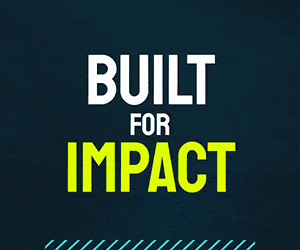Dalbey: Iowans play a key role in shaping national agenda

You can’t have missed the crush of presidential candidates trying to get your support in Iowa’s first-in-the-nation presidential caucuses Jan. 19. Their commercials are already showing up on television, replete with images of time-honored Iowa landmarks and icons. Empty buildings have been turned into the candidates’ Iowa campaign headquarters, making Locust Street in the West Gateway area look like the fraternity row of the political world.
It used to be that presidential hopefuls wanted their pictures taken with pigs, a wink and smile meant to convey that they’d work to protect agrarian states like Iowa. Since most of the hogs in Iowa today are raised in stinking, hulking and possibly polluting confinements that many policymakers and sociologists say represent environmental disaster, you don’t see them sidling up alongside controversial hog producer A.J. “Jack” DeCoster and mugging for the national press. Pigs have simply lost their appeal.
Now, in post-9/11 America, it’s all about patriotism, and it’d be hard to find a place that looks more like God, country and the flag than Iowa.
The candidates do love to have their pictures taken looking Iowan, to be seen as part of the fabric of the state’s celebrations, its families, its farms and its businesses. They maneuver to become part of a set that screams, “This is Middle America, a place you can run up the flagpole with the reasonable expectation that it’ll be saluted.”
They played the Iowa State Fair for all the votes it was worth. The fairgrounds were littered with reminders of presidential campaigns that were born in – and may die in – Iowa. It’s no wonder that in some cynical circles, the Iowa caucuses are known as the Iowa “carcasses.” It’s a process of culling, like one would perform with a cattle herd, which makes the irony of the agricultural backdrop so many of them choose all the more delicious. It has been argued that Iowa, with its small, mostly white, mostly Christian population, is a poor place to start winnowing the field of candidates. It’s true that Iowa lacks diversity, but there’s another side to that. Well-educated, respectful and hard-working, strong in their faiths and centered around family, Iowans for the most part personify values that are universally recognized as worthy of emulation.
Other arguments are that the state’s influence over the presidential selection process is far greater than its number of electoral votes and that only a handful of Iowans actually participate in the neighborhood meetings.
But that’s the beauty of the caucuses. They’re not set up to attract voters who’ll give their support whimsically or based on whomever’s commercial they viewed last. The caucuses, neighborhood meetings where important issues are discussed, require a time commitment. The participants care – and care deeply. They’ve studied the issues, and they throw their support to the candidates who best represent their values. It’s a privilege to be an Iowan at caucus time. If interested, Iowans can see every presidential candidate at least once, get some face time with the person who could become the most powerful leader in the world. But, more important, they can help shape a national agenda.
Beth Dalbey is editorial director for Business Publications Corp. E-mail her at bethdalbey@bpcdm.com.






